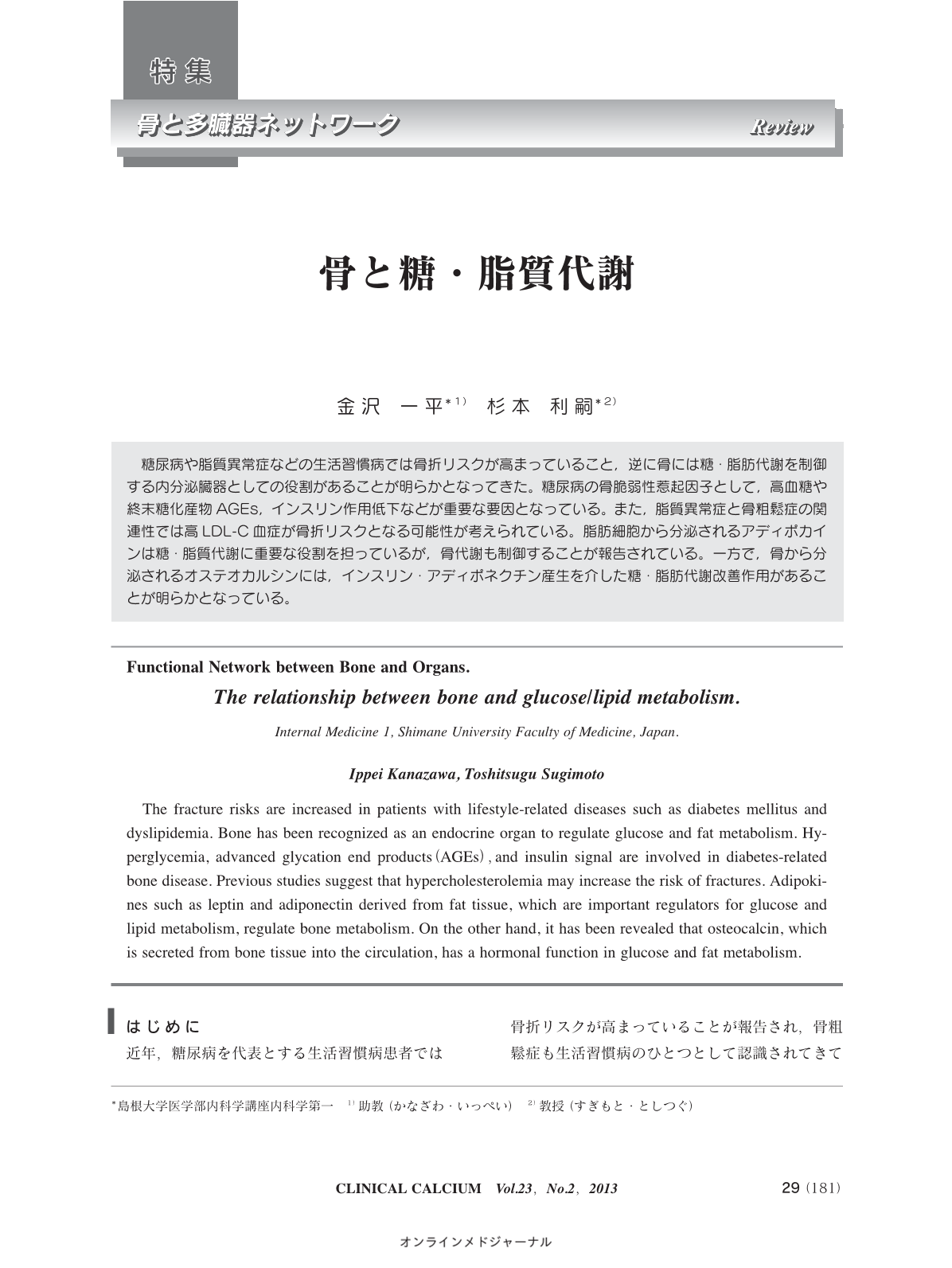Japanese
English
- 有料閲覧
- Abstract 文献概要
- 1ページ目 Look Inside
- 参考文献 Reference
糖尿病や脂質異常症などの生活習慣病では骨折リスクが高まっていること,逆に骨には糖・脂肪代謝を制御する内分泌臓器としての役割があることが明らかとなってきた。糖尿病の骨脆弱性惹起因子として,高血糖や終末糖化産物AGEs,インスリン作用低下などが重要な要因となっている。また,脂質異常症と骨粗鬆症の関連性では高LDL-C血症が骨折リスクとなる可能性が考えられている。脂肪細胞から分泌されるアディポカインは糖・脂質代謝に重要な役割を担っているが,骨代謝も制御することが報告されている。一方で,骨から分泌されるオステオカルシンには,インスリン・アディポネクチン産生を介した糖・脂肪代謝改善作用があることが明らかとなっている。
The fracture risks are increased in patients with lifestyle-related diseases such as diabetes mellitus and dyslipidemia. Bone has been recognized as an endocrine organ to regulate glucose and fat metabolism. Hyperglycemia, advanced glycation end products(AGEs),and insulin signal are involved in diabetes-related bone disease. Previous studies suggest that hypercholesterolemia may increase the risk of fractures. Adipokines such as leptin and adiponectin derived from fat tissue, which are important regulators for glucose and lipid metabolism, regulate bone metabolism. On the other hand, it has been revealed that osteocalcin, which is secreted from bone tissue into the circulation, has a hormonal function in glucose and fat metabolism.



